Emotionally Intelligent Leadership
7 Habits of Highly Effective People, Teams and Leaders
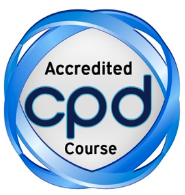
✔︎ In Person

Stephen Covey’s “The 7 Habits of Highly Effective People” remains a cornerstone in personal development. This workshop combines Covey’s principles and Emotional Intelligence Behavioural markers to help individuals, teams, and leaders develop sustained high-performance.
Skills you’ll gain:
✔︎ Leadership ✔︎ Self-Awareness ✔︎ Communication ✔︎ Empathy
- The 7 Habits of Highly Effective People, Teams and Leaders
- The principles of Emotionally Intelligent Leadership
- Leadership and Management Roles
- Emotional Intelligence Development
- Developing Winning Behaviours and Attitudes
- Creating Shared Visions with guaranteed “Buy-in”
- Creating High-Performance, Emotionally Intelligent, SUPER Teams
- Understanding the Personality Preferences and Styles of our Colleagues and Clients
- Strategic Planning and Change Management
- Stress and Conflict Management
- Turning Conflict into Collaboration – de-escalation conversations and techniques
- Goal Setting and Decision Making – optimising our time management
- Organisational Culture and Ethics
- Customer Relations and Project Management
- Coaching, Mentoring, and Motivation
- Creating a Working Environment where Innovation and Continuous Improvement Thrive
Independence:
Habit ONE – Be Proactive: Take charge of your reactions and focus on your circle of influence.
HABIT TWO – Begin with the End in Mind: Envision goals and align actions with principles.
HABIT THREE – Put First Things First: Prioritize tasks effectively using Covey’s matrix.
Interdependence:
HABIT FOUR – Think Win-Win: Seek mutually beneficial solutions in relationships.
HABIT FIVE – Seek First to Understand, Then to Be Understood: Practice empathetic listening.
HABIT SIX – Synergize: Combine strengths through teamwork for greater outcomes.
Continuous Improvement and Wellbeing Culture:
HABIT SEVEN – Sharpen the Saw: Balance and renew resources for sustainable effectiveness.
The cost will be £1,940.00 + VAT for 2 days of training, for up to 12 delegates – including all preparations, trainer’s expenses, and materials.
Delegates can also complete an optional British Psychological Society Emotional Intelligence, online, profiling which will create a personalised, 29-page, E.I. Profile which identifies personal ‘scores’ against the 8 EI Behaviours and also dominant E.I. Leadership style. This profile costs £50.00 + VAT per delegate and also includes a 30-minute 1-to-1 Coaching / Feedback Review which is conducted via a TEAMS video call.
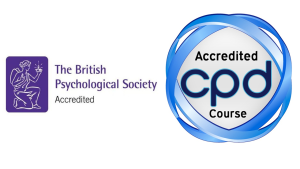
Emotionally Intelligent Leadership
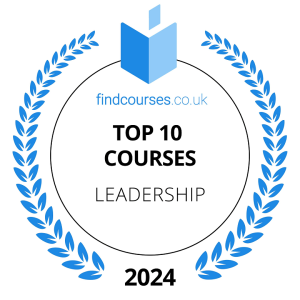 Stephen Covey’s best selling and award-winning book “The 7 Habits of Highly Effective People” is STILL the “Go To” book for all those people who are committed to Continuous Personal Development. This workshop refreshes the 7 Habits and applies them to the roles of Individuals, Teams or Leaders who want to use proven concepts to shift their paradigm of life and work.
Stephen Covey’s best selling and award-winning book “The 7 Habits of Highly Effective People” is STILL the “Go To” book for all those people who are committed to Continuous Personal Development. This workshop refreshes the 7 Habits and applies them to the roles of Individuals, Teams or Leaders who want to use proven concepts to shift their paradigm of life and work.
The first three habits surround moving from dependence to independence and self-mastery
Independence
1. Be PRO-Active
Take responsibility for your reaction to your experiences, take the initiative to respond positively and improve the situation. Recognise your Circle of Influence and Circle of Concern. Focus your responses and initiates on the centre of your influence and constantly work to expand it. Don’t sit and wait in a reactive mode, waiting for problems to happen (Circle of Concern) before taking action
2. Begin with the end in mind
Envision what you want to achieve in the future so you can work and plan towards it. Understand how people make decisions in their life. To be effective you need to act based on principles and constantly review your mission statements. Are you – right now – who you want to be? What do I have to say about myself? How do you want to be remembered?
3. Put First things First
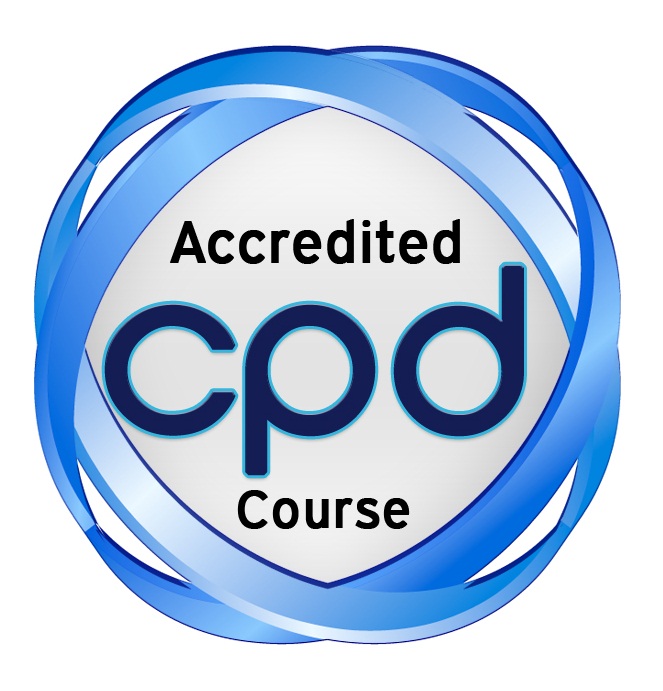
Matrix of importance vs urgency that Stephen Covey and Dwight Eisenhower used in deciding where to invest their efforts. Categorising our tasks into what is important and what is urgent. Learning the art of prioritisation and over-coming all those “time-stealers” which distract us from achieving our Goals.
The next three habits talk about Interdependence and how we work with others
Interdependence
4. Think Win-Win
Genuine feelings for mutually beneficial solutions or agreements in your relationships. Value and respect people by understanding a “win” for all is ultimately a better long-term resolution than if only one person in the situation had gotten their way. Think Win-Win isn’t about being nice, nor is it a quick-fix technique. It is a character-based code for human interaction and collaboration.
5. Seek first to understand, then to be understood
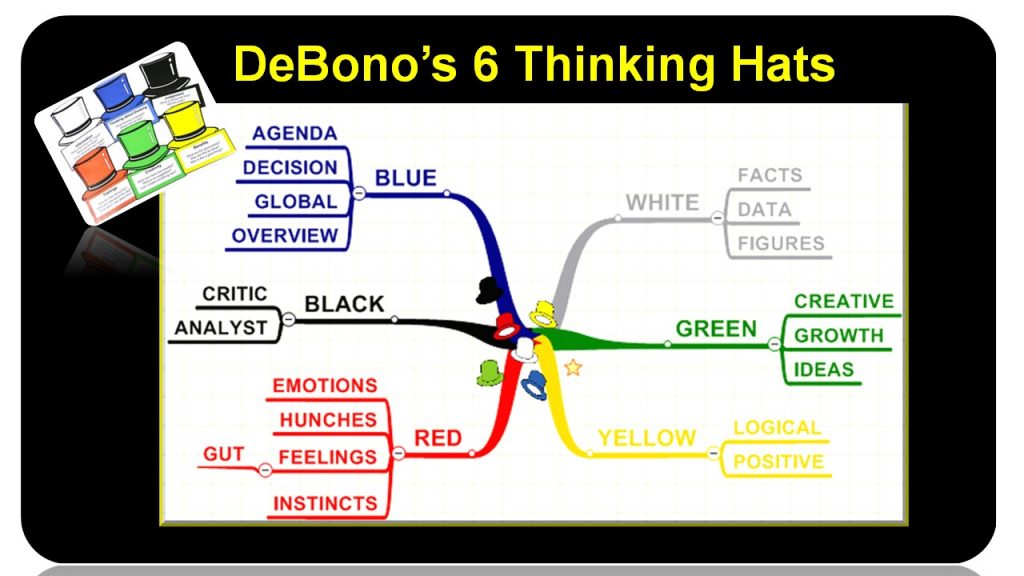
Use empathetic listening skills to genuinely understand a person, which compels them to reciprocate the listening and take an open mind to be influenced by you. This creates an atmosphere of caring, and positive problem-solving. Applying the skills of inter and intra personal skills of Emotional Intelligence.
6. Synergise
Combine the strengths of people through positive teamwork, so as to achieve goals that no one could have done alone.
Continuous Improvement Culture
The final habit is that of continuous improvement in both the personal and interpersonal spheres of influence.
7. Sharpen the Saw
Balance and renew your resources, energy and health to create a sustainable, long-term, effective lifestyle, optimising wellbeing and building stress resilience.

The application of neuro-science enables us to manage our behaviours and attitudes and in turn we can learn how to manage how to optimise our Heart-Brain Coherence.
In essence, one is always attempting to integrate and master the principles outlined in The 7 Habits at progressively higher levels at each iteration. Subsequent development on any habit will render a different experience and you will learn the principles with a deeper understanding.
Delegates will: –
➢ Learn how to manage their own Circle of Influence, in order to become more effective
➢ Consider the impact of learning how to become pro-active
➢ Learn how to adopt Positive Psychology into their lives
➢ Increase their understanding of the importance of “Taking Ownership” in any given situation
➢ Complete a Personal Leadership Style Profiling in order to identify their “natural” style and to identify how to apply the correct style of leadership to any given situation.
(Situational Leadership)
➢ Learn how to use Appreciative Inquiry and the Disney Creative Strategy Visioning Tools to enable collaborative “Buy In”
➢ Create excellent Planning and Prioritising Skills – both Personally (Time Management) and Organisationally
➢ Learn how to define what is “Urgent” and what is “Important”
➢ Learn and develop Professional Communication Skills: NLP, Transactional analysis, Empathic Listening
➢ Learn how to handle Difficult Situations and how to defuse Conflict
➢ Be able to apply The ABC of Managing Behaviours
➢ Explore the causes of Conflict in the Team – and will identify their Thomas & Kilmann Conflict Style – find the Win-Win
➢ The 4 Theories of Motivation …and … how to choose the correct one!
➢ Increase their Self Awareness and Confidence in their Leadership Style
➢ Understand how our 8 Emotional Intelligence Behaviours stack up under pressure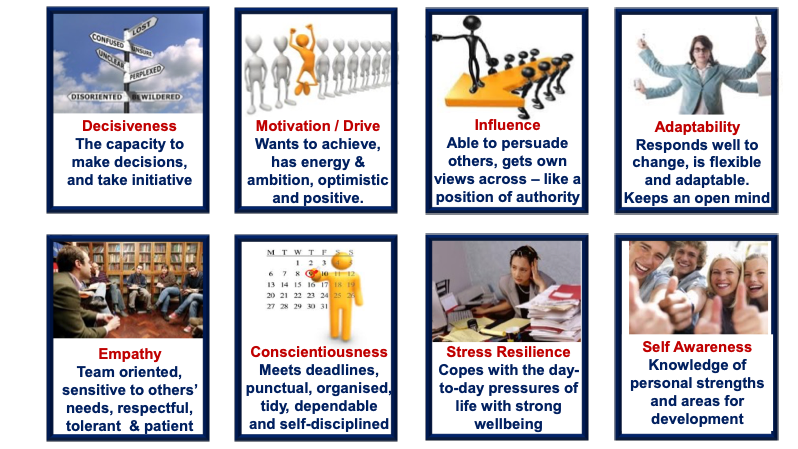
➢ Learn how ‘Listen out’ for the 90% non-verbal communication
➢ Increase their understanding and reading Body Language
➢ Experiment as to how to Apply the ‘psychology of listening’
➢ Become aware of Self + Other Awareness in their Emotional Intelligence
➢ Gain a deep insight into personality types and the dynamic impact that diverse personalities have within a Team.
➢ Complete a British Psychological Society On-line Emotional Intelligent profile to develop “Self” and “Other” Awareness and to identify any Development gaps
for the individual and organisation (Optional Extra)
➢ Develop their personal Emotional Intelligence on their journey towards Emotionally Intelligent Leaders – applying Daniel Goleman’s principles of E.I.
➢ Discover and develop the 8 Emotional Intelligence Behaviours and Attitudes
➢ Learn how to achieve “Buy-In” and how to create “Shared Visions” in their Team
➢ How to Model the Company Vision and Values within your Team
➢ Applying the “Art of Delegation”
➢ Explore; “Leadership, Followership and Conflictors!”
➢ How to create Winning Behaviours and Attitudes in our Teams
➢ Learn the principles and power of Positive Psychology
➢ Discover “The 7 Habits of Highly Effective People – Teams – Leaders”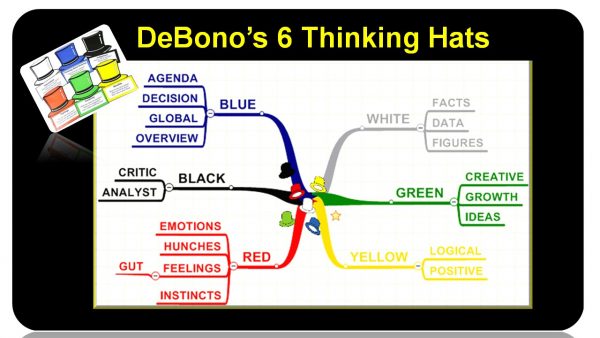
➢ Consider the importance of personal well-being – ‘beyond’ Mindfulness
➢ How to control your biorhythms and build stress resilience
➢ Learn the importance of developing a flexible leadership style and know when to use each style.
➢ Learn and Consider 3 Leadership models: John Adairs’ Active Leadership, Blanchard’s Situational Leadership and Tuckman’s Leadership Model.
➢ Learn how to create highly effective and functional teams (Lencioni)
➢ Learn the 4 progressive stages of Team dynamics and development
The 7 Habits of Highly Effective People – Teams – Leaders
➢ Discover how to Build High Performance, Emotionally Intelligent, Teams
➢ How to turn Conflict into Collaboration – Managing Conflict in Teams
➢ Explore “The 5 Dys-Functions of a Team” – Creating a Functional Team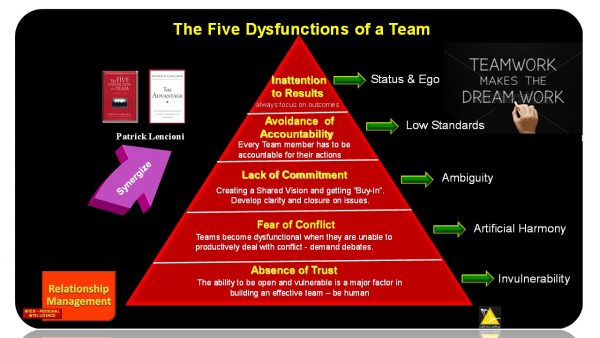
➢ Learn how to create buy-in of shared visions thus creating a motivated Team.
➢ Learn how to assess their own teams for functionality (Lencioni’s 5 Dysfunctions of a Team) – and will practice 5 skills to develop functional and high-performance teams.
➢ Learn to use the same Leadership and Team Working Principles which we have previously delivered to the Red Arrows
➢ Participate in Experiential Activities in Team Building
Click Here for and overview of this life-changing programme